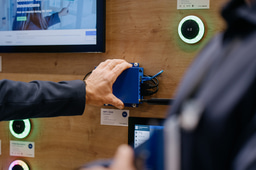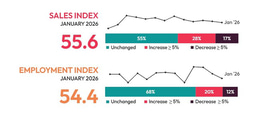Tech that Prioritizes Privacy Runs the Show

When the COVID-19 pandemic broke out, many countries ordered their citizens to stay at home, affecting interactions that require physical presence. Most turned to web-based video conferencing platforms to maintain their operations.
Although governments passed legislation and organizations provided guidance on conducting virtual meetings safely, it was apparent that a lot of the legacy video conferencing platforms had severe limitations, especially in terms of privacy issues.
“Zoom has been a rich target for cybercriminals and malicious actors,” said former FBI agent Brad Garrett.
Security issues such as the lack of end-to-end encryption and hijacking or “Zoom bombing,” revealed disparities in video conferencing solutions. However, startups can use this as an opening to incorporate better solutions for various video conferencing security needs.
Several legaltech startups have emerged to accelerate the digital transformation of the legal industry. And as schools pivoted to remote and hybrid learning, video conferencing platforms such as Class and InSpace started incorporating ID verification and end-to-end encryption in the education technology space. That way teachers can verify students and prevent meeting disruptions.
Multiple startups in the digital healthcare space, like SteadyMD, which powers high-quality telehealth experiences for digital healthcare companies, are pursuing an infrastructure approach so that other companies can offer telehealth services securely as well.
Alberto Gómez, Managing Partner of Adara Ventures, an early-stage venture capital firm that invests in deep tech startups, also said in this article that “hybrid meetings with legal guarantee and traceability will quickly become the standard.”
Sean Wargo ( @Sean Wargo ), the Senior Director of Market Intelligence at AVIXA, also chimed in.
“While in the past, integrators of conferencing and collaboration systems were primarily focused on the quality of the conference room experience, the shift to more hybrid meetings has introduced new considerations as well,” said Wargo. “Security and scalability are chief among these as companies seek to keep their meetings and the resulting data secure while also facilitating large scale rollout across offices and remote work locations. This places changing demands on the AV providers of today, pulling them more into the IT oriented realms of cyber-security.”
This is an opportune moment for startups when it comes to video conferencing security. Where do you see the future heading in terms of video conferencing and security?
Recommended Content
Navigating the Hybrid Paradox: A Blueprint for Modern AV Excellence






Please sign in or register for FREE
If you are a registered user on AVIXA Xchange, please sign in
New technology always opens up new problems but new problems open up new jobs and new jobs create new technology! Its a poetic cycle!